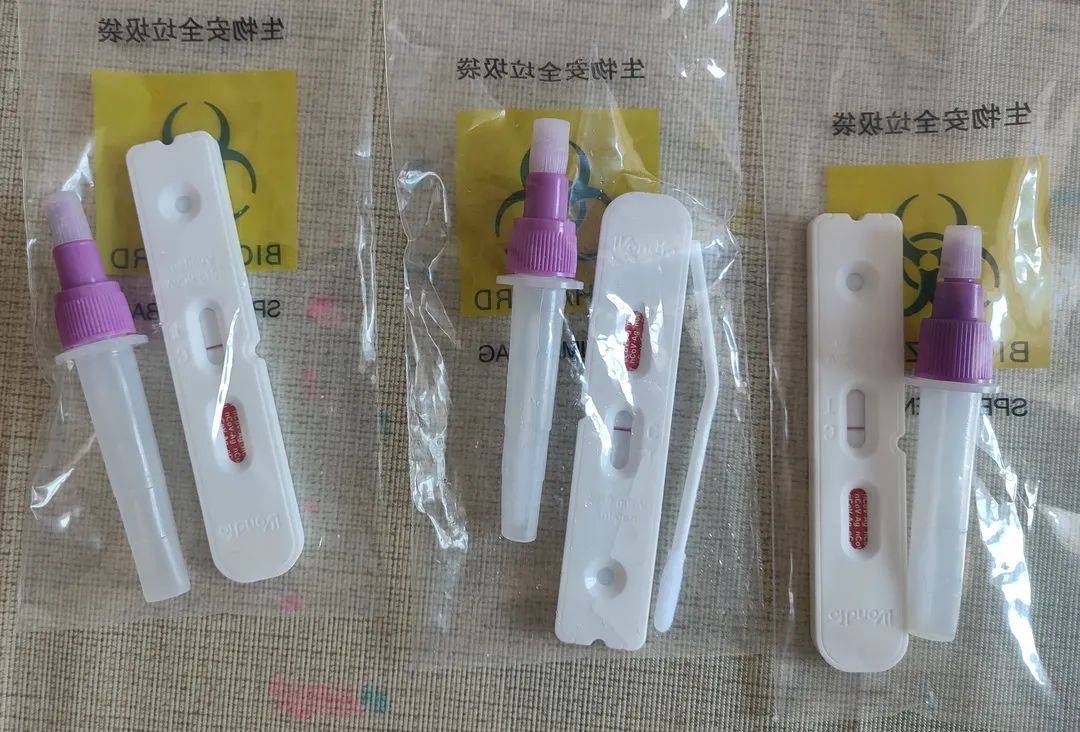
Recently, a video circulated on the Internet: Someone cut an orange and squeezed the juice on the antigen test kit. Before long, a purple-red horizontal line appeared in the “T positionâ€. Some netizens dropped cola on the antigen detection kit, and the “T position†also changed color. As a result, some people came to the conclusion that “you can’t eat oranges or drink cola before doing the antigen test, otherwise it will be positiveâ€. is this real?
Antigen detection is based on antibodies to detect the protein components of the virus, so as to determine whether the sample to be tested contains the virus.
Antigen detection is more convenient and fast, and results are usually available in 15-20 minutes, but the sensitivity is slightly lower, and false positives may occur due to the existence of some interference. However, it cannot be said that the cola or orange antigen test is “positive†or “weak positiveâ€, because the antigen test kit is used for human samples as mentioned in the instructions, such as nasal swabs, not cola, orange juice and other liquids.
The antigen nucleic acid detection kit has undergone a complete test before it is put on the market, including those who are infected with influenza, pneumonia or even COVID-19 pneumonia, and there will be no positive test results. The T-bit of the card is purple. And pouring cola and orange juice means that the composition of the antigen dilution is destroyed, and the result is inaccurate, so no matter what color the T position appears, it is meaningless.
In fact, drinking cola or eating oranges will not affect the antigen test results in principle. Normal diet will not affect the composition of the nasal swab sample – even if there is a small probability that some cola or orange juice will enter the nasal cavity, but usually the concentration will not be very high, completely different from the cola or orange juice dripped directly into the kit. Therefore, there is no need to worry about drinking cola, eating oranges or eating other foods to affect the antigen test results.
Vitamins are essential organic compounds that bodies need in small amounts to function properly. They play a crucial role in maintaining good health and preventing various diseases. There are 13 essential vitamins that are classified into two categories: water-soluble and fat-soluble.
Water-soluble vitamins include vitamin C and all the B vitamins (thiamin, riboflavin, niacin, pantothenic acid, biotin, vitamin B6, vitamin B12, and folate). These vitamins are not stored in the body and need to be replenished through diet or supplements daily.
Fat-soluble vitamins include vitamins A, D, E, and K. These vitamins are stored in the body's fat tissues and liver and can accumulate to toxic levels if taken in excess. Therefore, it is essential to consume these vitamins in moderation.
Each vitamin has a specific role in the body, and a deficiency in any of them can lead to various health problems. For example, vitamin C is essential for the immune system, wound healing, and collagen synthesis. Vitamin D is necessary for bone health and calcium absorption, while vitamin A is crucial for vision and skin health.
Of course animals need vitamins too, for example vitamins K3,medicine vitamins,Menadione,poultry vitamins,feed vitamins to boost immunity and growth.
vitamins K3,medicine vitamins,Menadione,poultry vitamins,feed vitamins
NANYANG CHENGPENG PHARMACEUTICAL CO.,LTD , https://www.chppharm.com